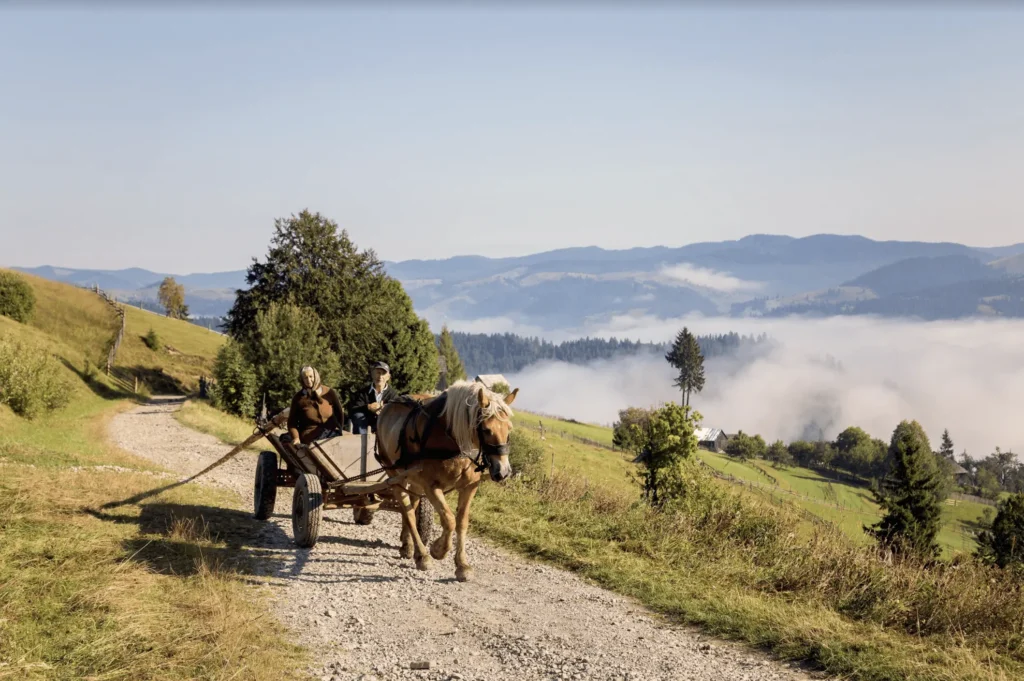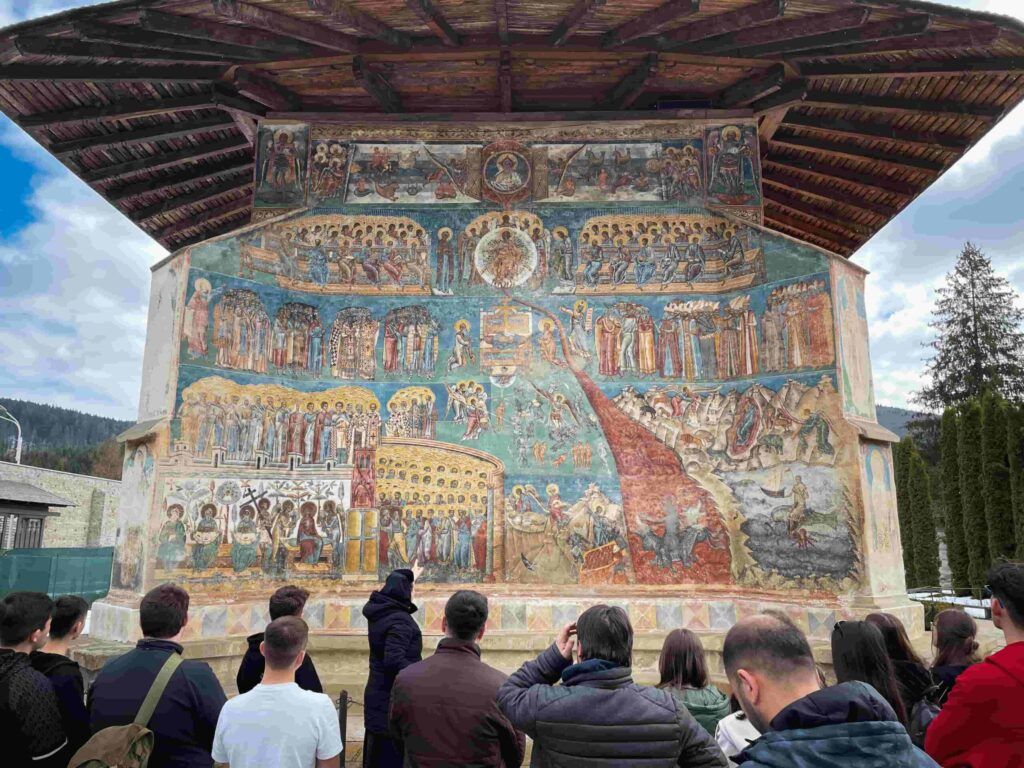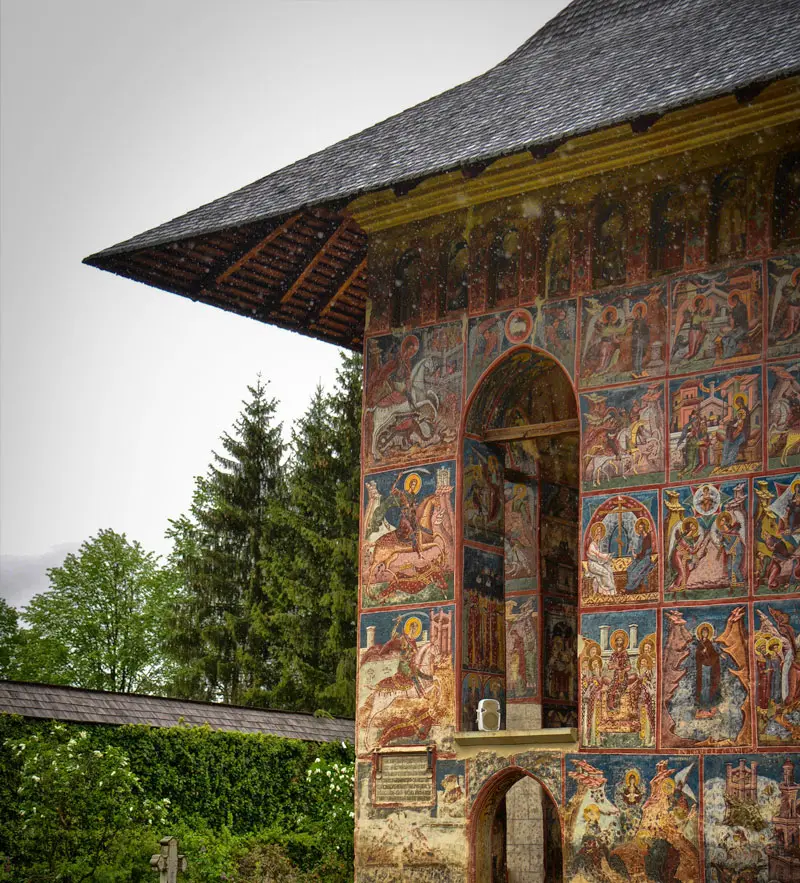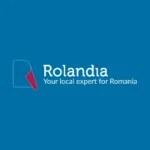Chapters
Easter is, together with Christmas, one of the most important public holidays in Romania. The Orthodox Easter celebrates the Resurrection of Jesus, and that makes it one of the most important and beautiful Christian customs. In 2020, the Easter Day in Romania is celebrated on April 19th. This national holiday helps families throughout the country get together for at least a couple of days, and it is filled with customs and traditions.
Easter traditions in Romania
Egg dyeing is one of the most important Romanian Easter traditions. The painted eggs are always present on the table during the holiday, and kids can hardly wait to participate in the egg tapping competitions. The traditions say that people who knock painted eggs on the first day of Easter will see each other after death. The first person who taps the egg has to say “Christ has resurrected” (in Romanian, ‘Cristos a înviat’), while the second one goes “Indeed, he has resurrected” (in Romanian, ‘Adevarat a înviat’). The belief is that the person whose eggs are unbroken will enjoy the longest life. Usually, the Easter eggs are painted red and represent the blood shed by Jesus Christ at his crucifixion, but they can also be blue, yellow, or green.
But more specific to the Romanian tradition of dyeing eggs is decorating them with complicated traditional motifs, specific to each historic region of the country. The tradition is especially common in the region of Bucovina, and you can find such eggs at traditional fairs and in monasteries.
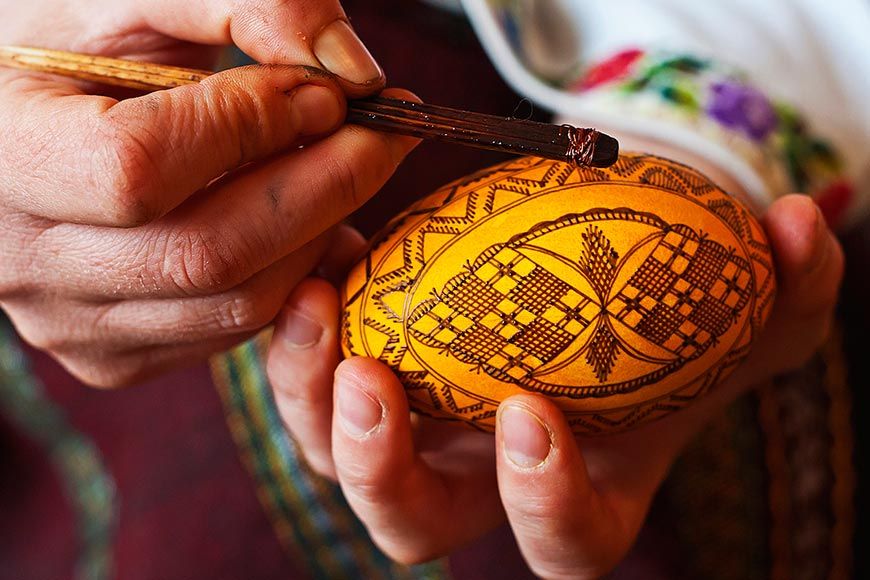
Decorating an egg with traditional motifs
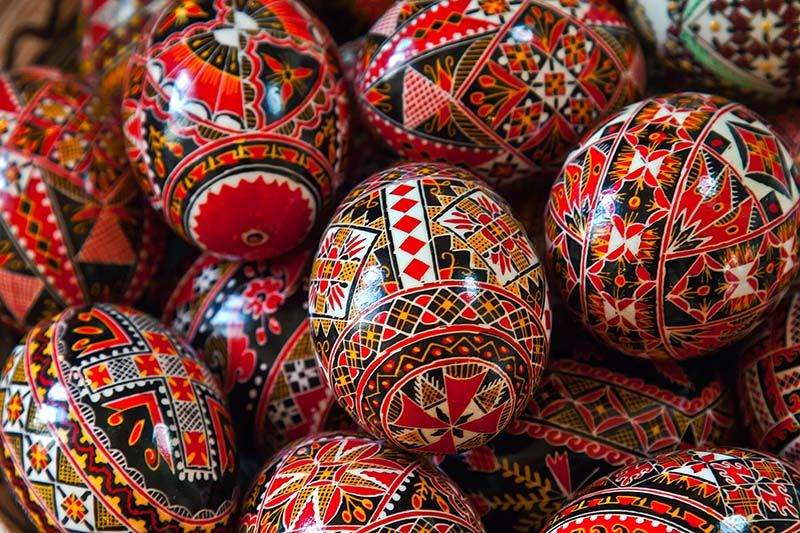
Red dyed eggs in Bucovina
Although the ornamental details vary from one region to another, all of the elements on the decorated eggs have meaning. Here’s the interpretation for some of them:
- the vertical line means life
- the horizontal line means death
- the double line means eternity
- the line with rectangular symbols means knowledge
- the curved line means water
- the spiral means time, eternity
- the double spiral means the bond between life and death.
Source: National Geographic
Another second-most important part of Romanian traditions is the Holy Light. On the Easter night, Romanian people go to their local church to light a candle and bring it into their home. That flame symbolizes the Resurrection of Christ and the triumph of good over evil.
On the first day of Easter, children and adults alike wash their faces and hands with fresh water, in which they put a red egg and basil. It is said that those who follow this tradition will be forever beautiful and healthy.
Another important “item” that revolves around the easter traditions in Romania is the easter foods. The main star of the dishes is lamb meat, which is served together with side dishes such as potatoes or prepared in traditional dishes such as drob. Something that shouldn’t be missing from the Easter table is the large variety of Easter bread and cakes. Known in Romania as “pască“, this delicious bread can be made with cheese, cream, raisins, or even chocolate and cocoa.
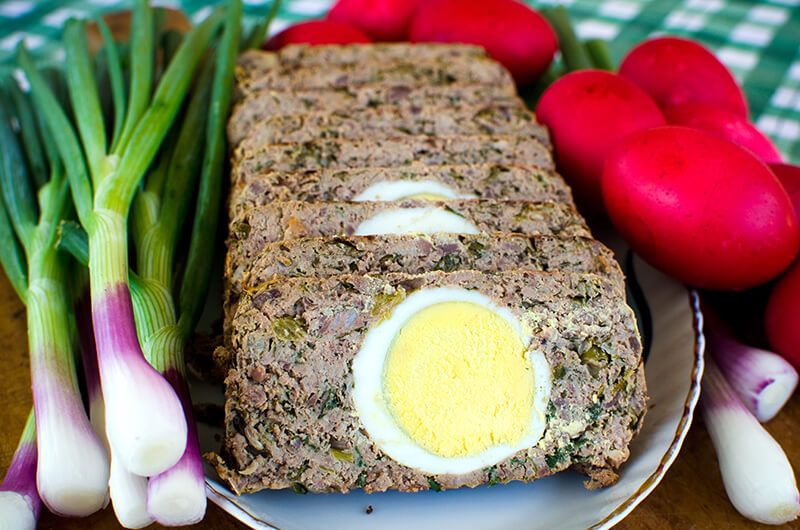
Traditional lamb drob
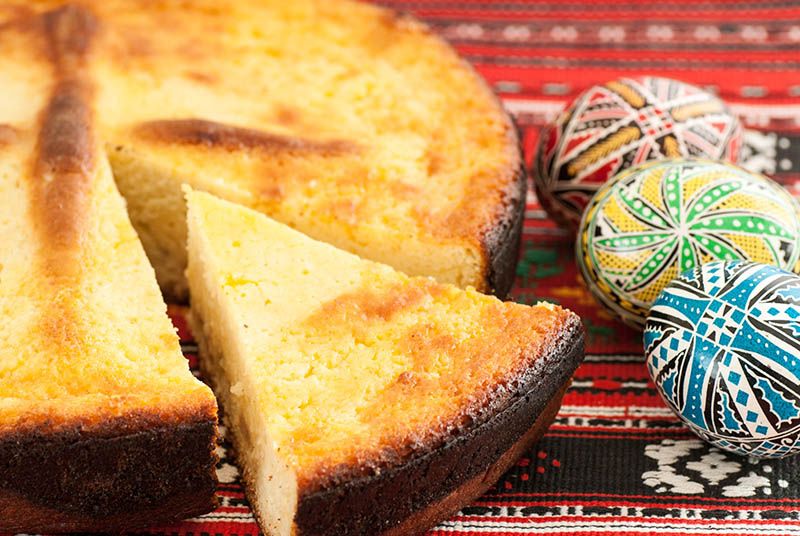
Traditional pască with raisins and sour cream
There are a lot of legends and myths about the traditional red eggs. The most popular one says that Mary, the mother of Jesus, went to grieve his crucified son and placed a basket filled with eggs at his feet, and as the blood of Jesus was dripping, it painted the eggs red.
Important days in the Romanian Easter
Initially dedicated to the Roman goddess Flora, Palm Day is a feast celebrated a week before the Romanian Easter in the memory of Jesus’ entrance to Jerusalem. On this day, people sanctify willow branches, that symbolizes the palm fronds which commemorates that moment.
Maundy Thursday, the fifth day of the Holy Week, commemorates the moment when Jesus Christ washed the feet of the Apostles. The Washing of the Feet is a traditional custom often celebrated in many Christian churches.
Good Friday or Black Friday, the sixth day of the Holy Week, commemorates the crucifixion of Jesus and his death at Calvary. In this day of mourning, Romanian people abstain from all food and drinks the entire day and in the evening, they eat Holy bread from the church.

